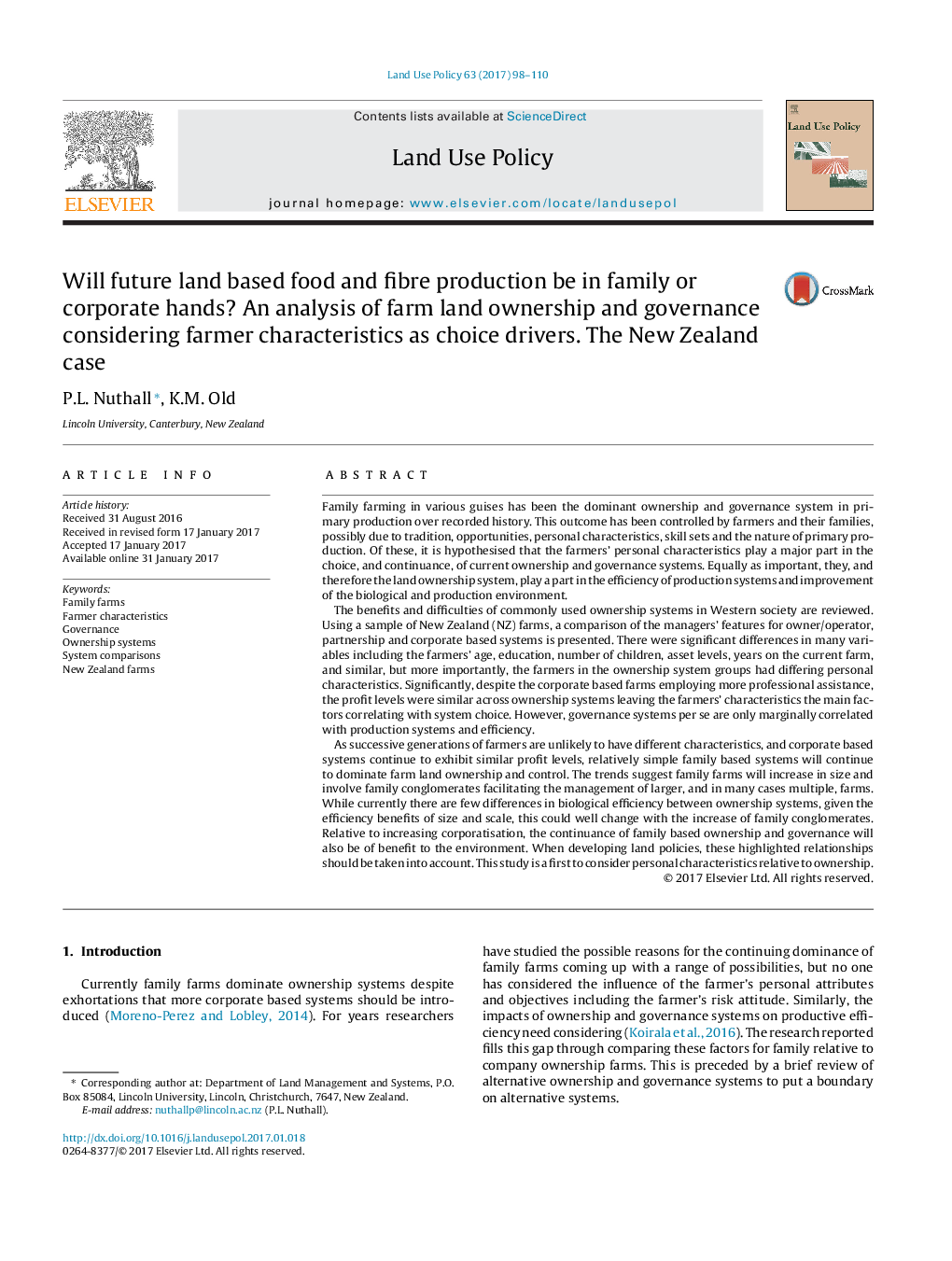| کد مقاله | کد نشریه | سال انتشار | مقاله انگلیسی | نسخه تمام متن |
|---|---|---|---|---|
| 6460976 | 1421820 | 2017 | 13 صفحه PDF | دانلود رایگان |
- Primary production has been dominated by family farm ownership and governance systems.
- Some believe a better system is based on the corporate model - which will dominate?
- Literature gives the pros and cons of each leading to a variable based systems model.
- Data based model analysis shows profit and production efficiency similar for each.
- The farmers personal characteristics turn out to be the important factors in choice.
Family farming in various guises has been the dominant ownership and governance system in primary production over recorded history. This outcome has been controlled by farmers and their families, possibly due to tradition, opportunities, personal characteristics, skill sets and the nature of primary production. Of these, it is hypothesised that the farmers' personal characteristics play a major part in the choice, and continuance, of current ownership and governance systems. Equally as important, they, and therefore the land ownership system, play a part in the efficiency of production systems and improvement of the biological and production environment.The benefits and difficulties of commonly used ownership systems in Western society are reviewed. Using a sample of New Zealand (NZ) farms, a comparison of the managers' features for owner/operator, partnership and corporate based systems is presented. There were significant differences in many variables including the farmers' age, education, number of children, asset levels, years on the current farm, and similar, but more importantly, the farmers in the ownership system groups had differing personal characteristics. Significantly, despite the corporate based farms employing more professional assistance, the profit levels were similar across ownership systems leaving the farmers' characteristics the main factors correlating with system choice. However, governance systems per se are only marginally correlated with production systems and efficiency.As successive generations of farmers are unlikely to have different characteristics, and corporate based systems continue to exhibit similar profit levels, relatively simple family based systems will continue to dominate farm land ownership and control. The trends suggest family farms will increase in size and involve family conglomerates facilitating the management of larger, and in many cases multiple, farms. While currently there are few differences in biological efficiency between ownership systems, given the efficiency benefits of size and scale, this could well change with the increase of family conglomerates. Relative to increasing corporatisation, the continuance of family based ownership and governance will also be of benefit to the environment. When developing land policies, these highlighted relationships should be taken into account. This study is a first to consider personal characteristics relative to ownership.
Journal: Land Use Policy - Volume 63, April 2017, Pages 98-110
